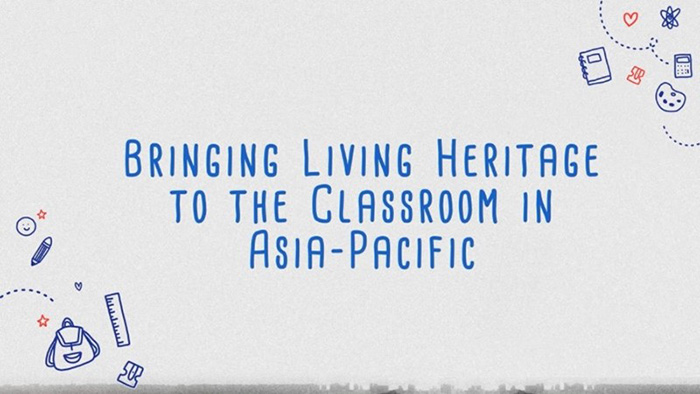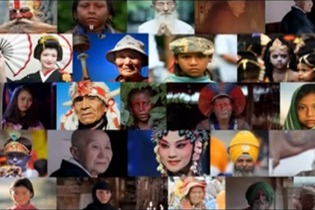UNESCO organizes a side-event on living heritage and education in Asia-Pacific
 |
| Register for the online event ‘Bringing Living Heritage to the Classroom in Asia-Pacific to Promote Transformative Education’ © ICHCAP website |
Since 2017, the Living Heritage Entity at UNESCO has been working together with the UNESCO Education Sector, Field Offices and Education Institutes to implement projects, activities and other initiatives related to ‘Safeguarding intangible cultural heritage in formal and non-formal education’. Incorporating intangible cultural heritage in school learning can enhance the quality of education, enliven the experiences of students and teachers and contribute to keeping heritage alive for current and future generations. In that sense, living heritage is an incredibly rich resource for countries to achieve Sustainable Development Goal 4‘Quality Education’ since it involves an appreciation of cultural diversity and an understanding of how culture can contribute to sustainable development.
In the context of the 2022 Asia-Pacific Forum for Sustainable Development (28 – 31 March), UNESCO Bangkok and ICHCAP are organizing an event titled ‘Bringing Living Heritage to the Classroom in Asia-Pacific to Promote Transformative Education’ in order to raise awareness on the relationship between intangible heritage and education. It will take place on 25th March from 8am to 9.15am (Paris time), 2pm – 3.15pm (Bangkok time). This event will bring together several stakeholders and key actors in the cultural and education sectors to talk about the successful experiences on integrating living heritage in schools in Asia-Pacific. Key resources and guidance for education managers, teachers and other people interested in education and culture will be introduced. UNESCO Bangkok and ICHCAP has notably produced an animations series on teaching and learning with ICH in Asia and the Pacific. The series is available in several languages, including in English, Khmer, Korean, Nepali, Russian, Thai and Lao.
Follow this link to register and visit our dedicated webpage to learn more on living heritage and education.

Address: 81, Laiguangying West Road, Chaoyang District, Beijing, China
Zip Code: 100021
Tel: 86-10-64966526
Fax: 86-10-64969281
E-mail: crihap@crihap.cn
Leave us your e-mail address, we'll let you know about current events.



